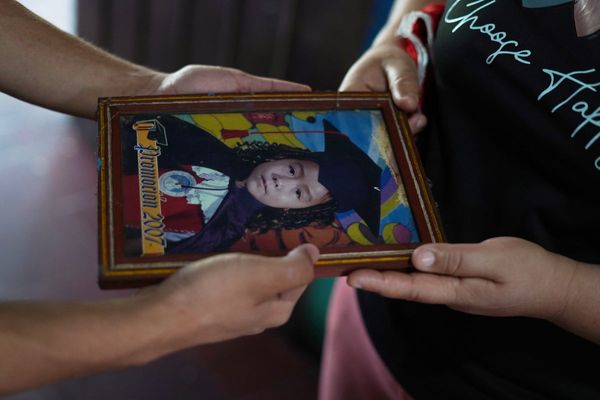
Police are to formally review whether they should take indecent exposure more seriously amid emerging evidence that people who commit such crimes can escalate their offending, the Guardian has learned.
It comes after it was revealed Wayne Couzens, the then-Metropolitan police officer who raped and murdered Sarah Everard, had committed a series of offences where he had exposed himself before the murder.
The review will be carried out by the College of Policing – which sets standards for forces in England and Wales – as forces contend with falling confidence among women after Everard’s murder and a series of other scandals.
David Tucker, the head of crime at the College of Policing, said: “Sexual offences can cause serious distress for victims and can have a lasting impact on them.
“The College of Policing is re-examining the evidence surrounding future offending and harm in relation to indecent exposure and how it’s dealt with by policing to make sure the learning and guidance we have in place reflects the seriousness of the impact of the offence and any indicators of future risk.”
The review will examine a study from the US that claimed up to 25% of those who committed indecent exposure offences went on to carry out further or more serious crimes. In British policing, it had been seen as a relatively low-level crime with little attention paid to whether a man committing it could escalate their offending.
But the US study found that an estimated 5-10% of exhibitionistic perpetrators later went on to contact sexual offending.
News of Couzens’s indecent exposure exacerbated the sense that the criminal justice system was failing to protect women and punish those who attack them.
It came on the back of David Carrick, also a serving Met officer, who was allowed to remain at large while carrying out 85 serious offences against 12 women – including 48 rapes – over 20 years, with repeated clues of the danger he posed missed by Britain’s biggest force.
National opinion polling for the Home Office is understood to show confidence in the police among women had fallen sharply after the Couzens scandal.
Couzens admitted three counts of indecent exposure between November 2020 and February 2021, months before he kidnapped and attacked Everard in March 2021.
He exposed himself at a drive-through McDonald’s restaurant in Kent on two occasions, on 14 and 27 February 2021, days before the abduction of Everard. He also exposed himself to a cyclist in woodland in Deal on 13 November 2020.
He was accused of other flashing offences, dating back to six years before the attack, starting with him driving with the lower half of his body exposed in Dover on 9 June 2015. He denied that and other offences, which prosecutors decided not to pursue after Couzens pleaded guilty to three other offences.
In Couzens’s case, the incidents that occurred in the days before he kidnapped Everard were reported to police who bungled the chance to identify him.
One of the victims told a court hearing police had missed the chance to identify Couzens as a danger to women before he went on to kill. The woman, who cannot be named because the identity of victims of sexual offences is protected, said: “This indecent exposure incident was reported on the Sunday. I had no one contact me or ask for a statement. It was only after Sarah’s murder that I became involved. If he had been held accountable when we had reported the crime, we could have saved Sarah.”
In another case, the mother of Libby Squire, murdered in February 2019, believes her attacker indecently exposed himself to her daughter weeks before raping and killing her in Hull. Pawel Relowicz also committed other offences before his criminality escalated to murder.
The college added that its Violence Against Women and Girls toolkit, released in December 2021, contained information on street harassment, which covers exposure and the preventive strategies that can be put in place to protect women from this behaviour.
• The subheading of this article was amended on 3 May 2023 to reflect the findings of the US study which the College of Policing will examine.
Information and support for anyone affected by rape or sexual abuse issues is available from the following organisations. In the UK, Rape Crisis offers support on 0808 500 2222 in England and Wales, 0808 801 0302 in Scotland, or 0800 0246 991 in Northern Ireland. In the US, Rainn offers support on 800-656-4673. In Australia, support is available at 1800Respect (1800 737 732). Other international helplines can be found at ibiblio.org/rcip/internl.html







